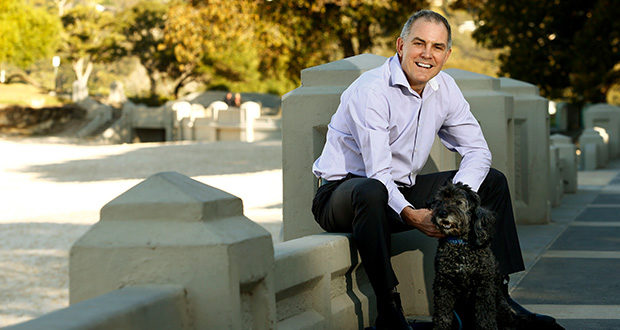Every day, 35 people in Australia are diagnosed with Parkinson's Disease and the risk increases as we age, affecting one per cent of people over 60 and five per cent aged 85.
The neurodegenerative disease causes certain neurons like dopamine, a neurotransmitter responsible for sending messages between nerve cells, to break down or die gradually.
This can result in physical symptoms, such as tremors, rigid movement and altered balance, and cognitive impairment, like dementia, depression and personality changes.
April is Parkinson’s Awareness Month, and Aged Care Insite spoke with specialist neurological nurse-educator Rachael Mackinnon, who has over 30 years of experience in the field, about the complex disease.
"Parkinson's is multifactorial; it's complex, insidious, progressive and neurodegenerative," Mackinnon said.
"At this stage, we can't cure it. The best way to help people is to understand the nuances of this disease and ensure that we are giving the right strategies and management for people to maximise their equality of life."
It's estimated that 5 to 8 per cent of people living in residential aged care have Parkinson's, creating the necessity for workers to understand its specialised care.
However, most aged care workers lack the training and experience to accommodate those needs.
Mackinnon said service levels should reflect the disease's trajectory, but noticed a "large void of knowledge and education".
"People in aged care facilities don't always fully understand the nature of Parkinson's," she said.
"There's a lot of room for improvement about education and training for people in aged care facilities around the special needs of Parkinson's."
When moving into residential aged care homes, they also tend to lose contact with their body movement neurologist, who supports their well-being and oversees symptom alleviation.
"They'll often be cared for by a GP who doesn't know them and often doesn't fully understand the nuances of Parkinson's," Mackinnon said.
Following the Royal Commission's report, minor improvements in our health care system might allow older people to stay at home longer.
Mackinnon said that "it's hard to look after people with Parkinson's" while living at home and that it can "become overwhelming for carers".
Aged Care Insite explored these challenges for carers and the fluctuating nature of Parkinson's disease in a conversation with Robyn and Bill Lindsay.
Bill Lindsay was diagnosed with Parkinson's 21 years ago at 59, noticing his first symptom when he couldn't walk properly at work.
"Now, he's falling three or four times a day. He can hardly walk at all," Robyn said. "All of a sudden, he just loses balance.
"When he falls, I can't get him up, which is really hard," she shared.
"I was working three days a week for the local government until I was 70. It was getting harder and harder because I was getting phone calls that he was [falling]. I had to get home to get an ambulance."
Bill received deep brain stimulation (DBS), a procedure that offers promising results when other dopaminergic medication doesn't sufficiently mitigate the physical symptoms.
However, it can induce behavioural and emotional changes since DBS targets brain regions associated with our personality.
"[Bill] had DBS, the deep brain stimulation, 10 years ago, which stopped all the tremors and dyskinesia," Robyn said.
"But it has changed his personality. He gets these mood swings. He has no tolerance.
"[People with Parkinson's] can't throw tantrums and be awful to the carer because the carer's doing it for their own sake, and it's hard on the carer. You just get so tired."
Despite their challenges, the couple enjoys a rich life with friends, family and regular outings.
"I don't care that I've got it. I mainly worry about Robyn. She's got to do everything for me. But otherwise, I'm doing the things that I like, and I try to get up there once or twice a week," Bill said.
"I'm lucky to have Robyn around. She's been very good to me."
Bill said that "Parkinson's isn't a death sentence; you learn to live with it".
So did the founder of the Shake It Up Parkinson's foundation, Clyde Campbell, who has managed to live well with the disease.
"One of the great benefits of Parkinson's is it is a slowly progressing disease, which gives us time to find ways to slow, stop and cure," Clyde said.
"But it's got limitations on what I can do, and I need to look after myself significantly more than I would in the past. So we have a very stringent exercise routine in the morning."
So far, Clyde's foundation has raised 22 million dollars in funds to support research in 19 Australian institutions.
He's confident that a ground-breaking cure will be found soon.
"I've become the ultimate optimist, so I'm very comfortable with what my future will look like, as long as I look after myself and look at what we can do to treat the disease better," Clyde said.
"It's essential to spread the understanding of what Parkinson's is and what we can do about making it a different disease moving forward."
Do you have an idea for a story?Email [email protected]
 Aged Care Insite Australia's number one aged care news source
Aged Care Insite Australia's number one aged care news source

